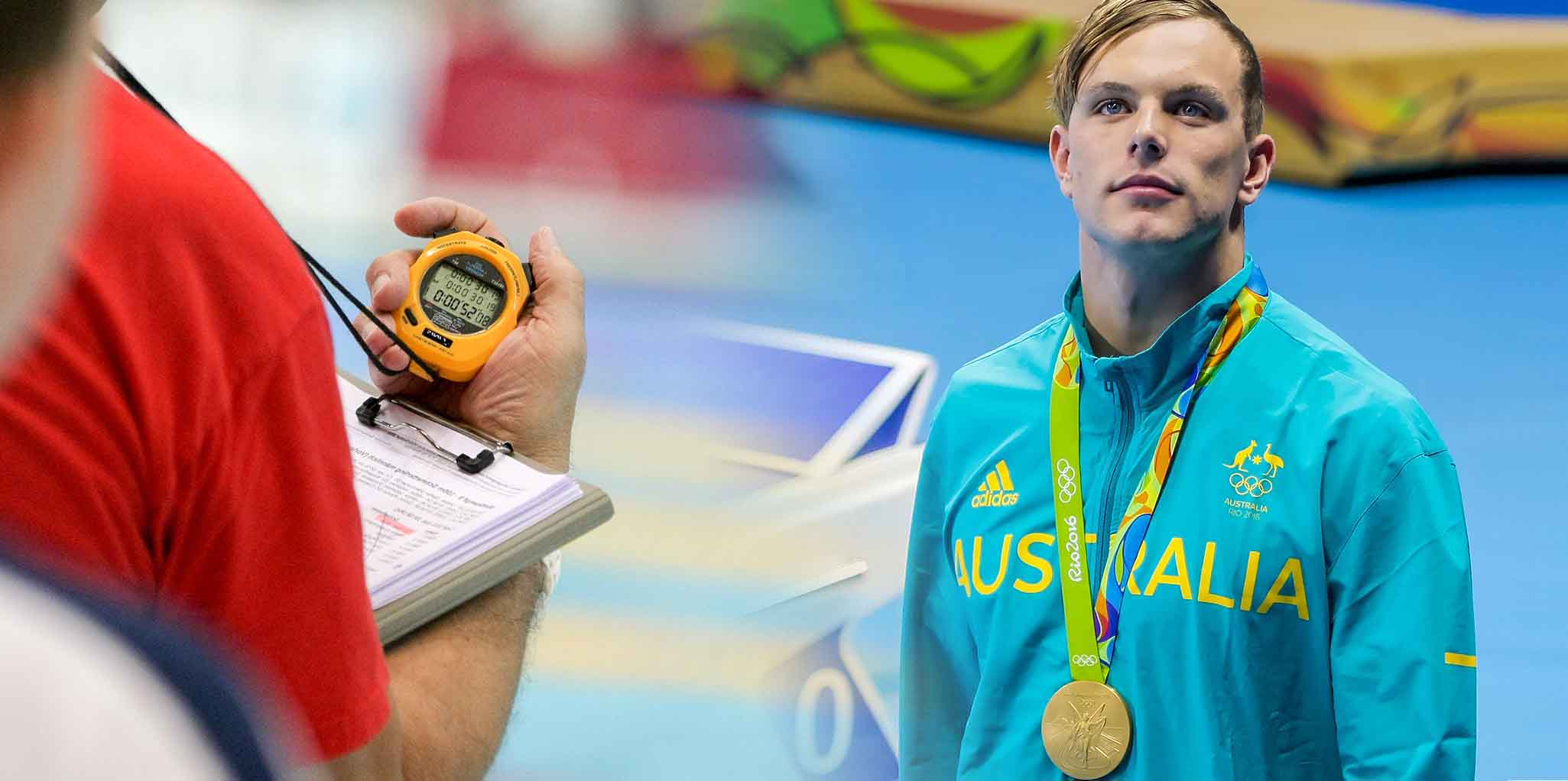“Swimmers have a need for speed”, Bronte Campbell tells us, while we are talking to the Olympic and World Champion about what motivates a swimmer. “You always want to be faster, it’s never enough. You want to push the boundaries to the next level”, she says. This inner “need for speed” keeps her striving for more. The medals and titles that sometimes come with it are secondary for the 23-year-old Australian. “Definitely getting faster is more important to me.”
It’s a tricky question in our sport: What matters more, swimming best times or winning medals? The South African star athlete Chad le Clos has his own take on this. “The times don’t make any difference to me. It’s all about winning gold medals”, he tells us, being very open about his motivations. Olympic Champion Ruta Meilutyte has a similar opinion: “Being a world champion is so special that the time doesn’t always matter as much. Being a world champion is way bigger than any time”. They’ve got a point. At a certain level it’s not enough to just swim fast times. You also need to deliver them at the right moment.
Ask Cameron McEvoy. In 47,01 seconds he is the fastest 100m freestyle swimmer of all times in a textile suit. But so far he never won a gold medal at Olympic Games or World Championships. His Australian national team- and roommate Kyle Chalmers however, was never faster than 48 seconds going into the 2016 Olympics but took away the 100m title in Rio. “Winning the Olympic gold medal was great. But I also did a .8 personal best time. That was amazing, too”, Chalmers remembers, bringing us back to the main question of what matters most, times or medals.
There is a key difference between both. A certain time is something that you can work for. It’s in your hands. You (or in most cases your coach) identify your strengths and weaknesses and model your training accordingly. A certain title however can be a dream that drives you but it can hardly be more than that. You can’t plan it, because you never know, what your opponents are able to do. It’s simply not in your hand. Chad le Clos gives a great example: “If I’m in great shape in Tokyo, I swim best times and phenomenally fast and some 18 year old kid comes along and breaks the world record by two seconds, then I still have to be proud of myself.”
Of course, the situation of Le Clos, Meilutyte, Chalmers or Campbell is different from most other swimmers. For them, medals also mean sponsoring, solidifying their status as world class athletes and last but not least they are part of their legacy. For everyone else and on most other levels, medals often have a limited meaningfulness, especially in age group swimming. Some kids are developed earlier than others, who might catch up in later years. Also: In age group swimming, medals can be a great motivation but they can also have the opposite effect. Some young champions lose their thirst as they feel like they don’t need to work hard and can still swim faster than others. So don’t let young swimmers get focused on medals too early on. Instead, the individual development should be what’s most important. One way of measuring this is by tracking their best times. They are an indication for the personal capability and shape of the swimmer, whereas medals always have to be put in a broader context.
"I was simply lucky that no one else was faster.
You don’t want to base your success on luck."
Bronte Campbell for example noticed first hand that there are different ways to win titles. At the World Championships 2015 she beat the rest of the field in the 50m freestyle, but as she didn’t swim a best time, it was no satisfying win for her. “It was an OK race, it was an OK time. I won it. But I wanted to go faster. I was simply lucky that no one else was faster. You don’t want to base your success on luck”, she said. A couple of days earlier she also won Gold in the 100m freestyle, but it was a totally different feeling. “That was a personal best time, it was an incredibly hard race to win. This was a real achievement.”
As you can see: Even gold medals have different shades. So at the end of the day it might be neither medals nor best times that matter but maybe simply the question whether you gave it your all. Or as Chad le Clos puts it: “It’s not about the fame, it’s not about money. It’s not about any of that. It’s about going to bed at night and feeling satisfied with what you’ve done.”

